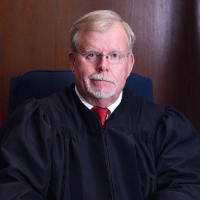Lowland Criminal Lawyer, North Carolina
Jessie Marie Corwin
✓ VERIFIEDBankruptcy & Debt, Criminal, Family Law, Personal Injury, Traffic
For whatever legal issue or dispute you’re facing, you will need a strong, dependable lawyer by your side to provide the support and guidance you ne... (more)
Peter Mack
✓ VERIFIEDCriminal, Traffic
Peter Mack, Jr. was a district court judge for the 3B Judicial District, serving Carteret, Craven, and Pamlico counties of North Carolina. Mack worked... (more)
FREE CONSULTATION
CONTACTFREE CONSULTATION
CONTACTDarrell B. Cayton
Defect and Lemon Law, Social Security -- Disability, Divorce, DUI-DWI, Car Accident
Status: In Good Standing
Stephen A. Graves
Civil & Human Rights, Criminal, Family Law, Personal Injury
Status: Inactive Licensed: 49 Years



